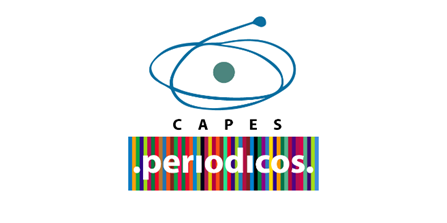WEIMAR E O “CONSTITUCIONALISMO SOCIAL” PARA ALÉM DA “SOLUÇÃO DE COMPROMISSO”: DE SUA INSPIRAÇÃO À CRISE DE PARADIGMAS QUE NUBLA O SURGIMENTO DO “NOVO” NO BRASIL
DOI:
https://doi.org/10.14210/rdp.v17n1.p1-15Palavras-chave:
Constitucionalismo Social, Constituição de Weimar , Hermenêutica Jurídica, Direito Constitucional , Direitos FundamentaisResumo
A República de Weimar iniciou a implantação dos direitos sociais, também chamados de direitos de segunda geração, como o direito à habitação, à educação e à saúde. Observa-se, portanto, o pioneirismo da Constituição de Weimar no que diz respeito a estabelecimento de direitos sociais, sendo, portanto, produto do aumento do peso político do operariado. Ao estabelecer o constitucionalismo social, Weimar centra-se nas relações entre Estado, Constituição, política e realidade, projetando, assim, um documento dirigente e compromissório. É nesse sentido que Weimar figura como uma espécie de “laboratório constitucional”, sendo a Constituição de 1988 produto desse contexto. Eis o objetivo que persegue este breve ensaio, em que importa compreender, por meio do método fenomenológico hermenêutico, os contextos que, na atualidade, nublam a efetivação de direitos sociais por aqui, não apenas enfraquecendo a própria Constituição como, ainda, retardando o regaste das promessas da modernidade, tardiamente projetadas em países periféricos, como o Brasil.
Downloads
Referências
AVELÃS NUNES. António José. As voltas que o mundo dá... Reflexões a propósito das aventuras e desventuras do estado social. Rio de Janeiro: Lumen Juris, 2011.
BERCOVICI, Gilberto. Constituição e política: uma relação difícil. Lua Nova, v. 61, p. 5-24, 2004.
BERCOVICI, Gilberto. A Constituição invertida: a Suprema Corte Americana no combate à ampliação da democracia. Lua Nova. São Paulo. n. 89, p. 107-134, 2013. Disponível em: <http://www.scielo.br/scielo.php?script=sci_arttext&pid=S0102-64452013000200005&lng=en&nrm=iso>. Acesso em: 13 jul. 2019.
BERCOVICI, Gilberto. Constituição econômica e dignidade da pessoa humana. Revista da Faculdade de Direito, Universidade de São Paulo, [S. l.], v. 102, p. 457-467, 2007. Disponível em: https://www.revistas.usp.br/rfdusp/article/view/67764. Acesso em: 29 jun. 2022.
CAPELLA, Juan Ramón. Fruta prohibida. Una aproximación histórico-teorética al estudio del derecho y del Estado. Madrid: Editorial Trotta, 1997, p. 172.
FARIA, José Eduardo. O Poder Judiciário no Brasil. Paradoxos, desafios, alternativas. Brasília: CJF, 1995.
GARCIA HERRERA, Miguel Angel. Poder Judicial y Estado Social: Legalidad y Resistencia Constitucional. In: Corrupción y Estado de Derecho – El papel de la jurisdicción. Perfecto Andrés Ibáñes (Editor). Madrid: Editorial Trotta, 1996
MORAIS, Jose Luis Bolzan de. Do Direito Social aos Interesses Transindividuais. Porto Alegre: Livraria do Advogado, 1996.
PINHEIRO, Maria Claudia Bucchianeri. A constituição de Weimar e os direitos fundamentais sociais: a prepoderância da Constituição da República Alemã de 1919 na inauguração do constitucionalismo social à luz da Constituição mexicana de 1917. Revista de Informação Legislativa. Brasília: Senado Federal, 2006. Disponível em: http://www2.senado.leg.br/bdsf/bitstream/handle/id/496901/RIL169.pdf?sequence=1#page=100. Acesso em: 07 jul. 2019.
STRECK, Lenio Luiz. Hermenêutica Jurídica e(m) crise. Uma exploração hermenêutica da construção do Direito. 11.ed., atual. e ampliada. Porto Alegre: Livraria do Advogado Editora, 2014.
STRECK, Lenio Luiz e MORAIS, Jose Luis Bolzan de. Ciência Política e Teoria do Estado. 8. ed. rev. e atual. Porto Alegre: Livraria do Advogado, 2014.
Downloads
Publicado
Como Citar
Edição
Seção
Licença
Na qualidade de autor(es) da colaboração, original e inédita, sobre o qual me(nos) responsabilizo(amos) civil e penalmente pelo seu conteúdo, após ter lido as diretrizes para autores, concordado(amos) com o Regulamento da Revista Eletrônica Direito e Política e autorizo(amos) a publicação na rede mundial de computadores (Internet), permitindo, também, que sua linguagem possa ser reformulada, caso seja necessário, sem que me(nos) seja devido qualquer pagamento a título de direitos autorais, podendo qualquer interessado acessá-lo e/ou reproduzi-lo mediante download, desde que obedeçam os Direitos Autorais.

















